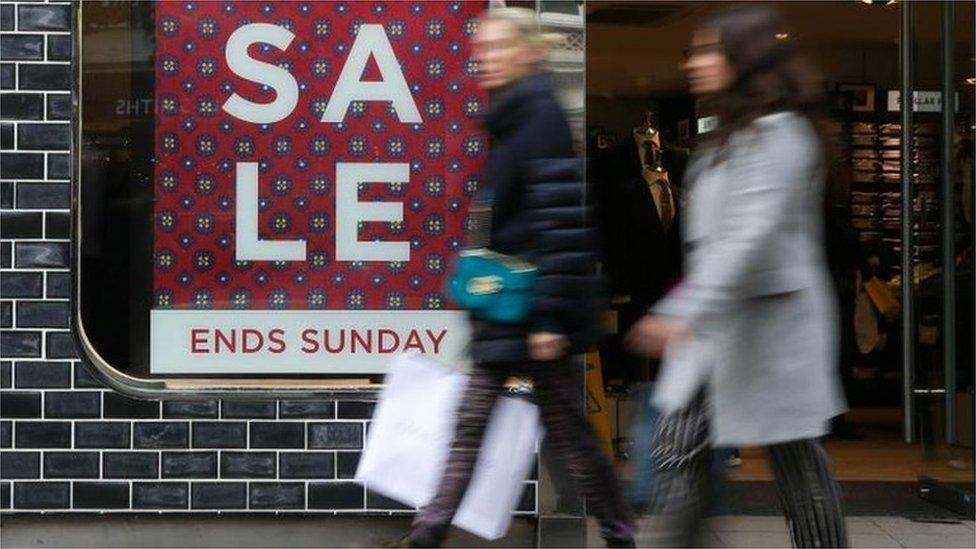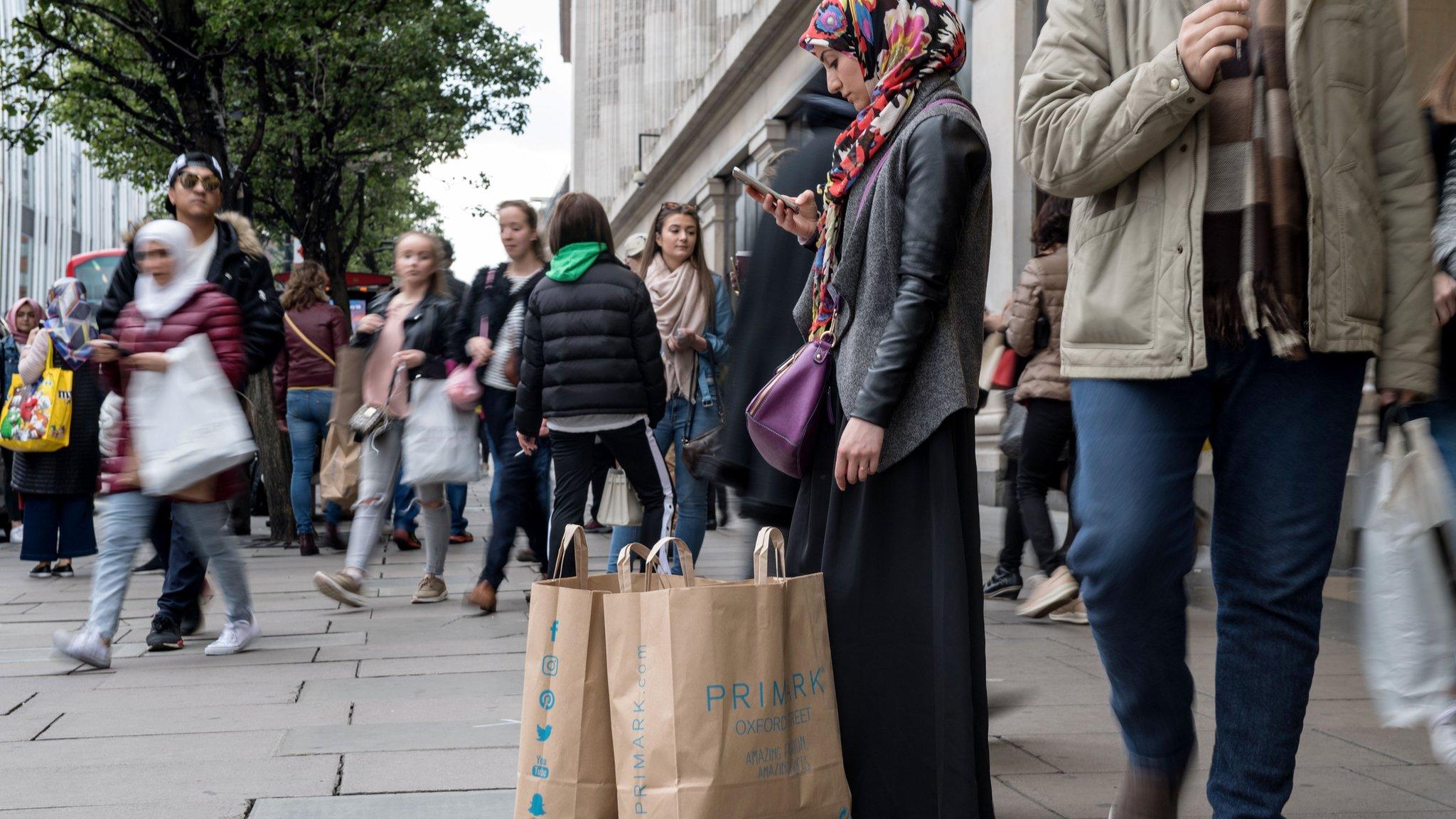Retailers hit by worst non-food sales growth on record
- Published
- comments

Sales of non-food items grew at the slowest pace since records began as families chose days out over shopping, the British Retail Consortium has said.
Non-food sales rose by just 0.2% in the year to October, the weakest growth since the BRC began measuring the category in January 2011.
The retail body said the figures would give retailers "cause for concern" in the run up to Christmas.
Clothing sales were "particularly hard hit", it said.
Total retail sales, including food, rose just 0.2% last month, compared with 2.4% last year. On a like-for-like basis, which excludes new store openings, sales were down 1%.
BRC chief executive Helen Dickinson said "consumers appear to have opted for outdoor experiences and excursions during half term, over visits to the shops".
The figures - which were compiled with accountancy firm KPMG - come just seven weeks before Christmas, the key trading period for most retailers.
Ms Dickinson said that the rise in inflation, which hit its highest for more than five years in September, was making shoppers "ever more cautious in considering what purchases they can afford".
Lagging profits
Several clothing chains have been struggling as the High Street faces tough competition from online retailers such as Asos.
On Tuesday, fashion chain New Look reported a loss of £10.4m for the six months to 23 September, a marked reversal from the profit of £59.3m seen in the same period last year. UK like-for-like sales at the retailer fell 8.4%.

Analysis: Emma Simpson, business correspondent
It's been a pretty dismal month for non-food retailers, especially fashion. The warm weather won't have helped, but even so, these figures will be a concern as the all-important Christmas trading gets into gear.
With prices rising faster than wages, consumers have less money to spend on non-essential items. Retailers are also grappling with the effects of a weaker pound as well as other cost pressures. That's on top of all the structural challenges, with the continuing shift to online.
It's clear that the going's really challenging right now for a number of retailers. Next has already warned of "extremely volatile" trading. The first real clue on how Christmas is shaping up will be Black Friday at the end of this month. Are shoppers merely holding back for a splurge and will some retailers now be forced to join the fray in order to shift stock at a discount to generate much-needed sales?

"The results reflect another tough period of trading for the company amid a challenging retail environment on the UK High Street," said New Look executive chairman Alistair McGeorge, external, adding that "the retailer is not anticipating a reversal in fortunes overnight."
Last week, Next reported, external that sales at its High Street stores had fallen by 7.7% in the year to 29 October, noting that "sales performance has remained extremely volatile and is highly dependent on the seasonality of the weather".
'Reversal of fortunes'
Paul Martin, head of retail at the accountancy firm KPMG, said that October marked a "reversal of fortunes for retailers".
He said: "After a brief uptick, fashion sales reverted back to the dreary theme we have seen for a number of months this year. Unseasonably warm weather last month will not have helped, but this is unlikely to be the only reason the new ranges are proving unpopular."
Mr Martin said that retailers will be hoping that consumers are saving up for Black Friday, the post-Thanksgiving shopping bonanza in the US which has become a key date for retailers in the UK.
This year it falls on 24 November, two days after the Budget.
Ms Dickinson said that the Chancellor Philip Hammond should reflect on the "disappointing state of play" when he gives his speech on 22 November and "deliver a Budget that allays the risks of a further slowdown in consumer spending, by keeping down the cost of living. In other words, a shoppers' Budget."
- Published25 October 2017
- Published10 October 2017
